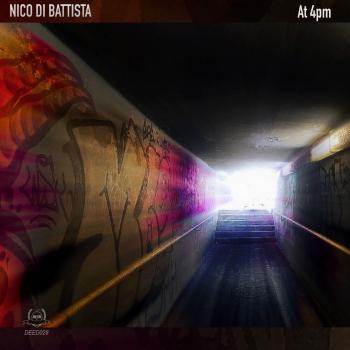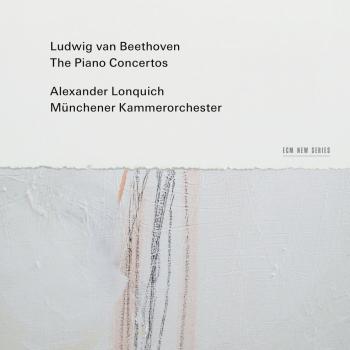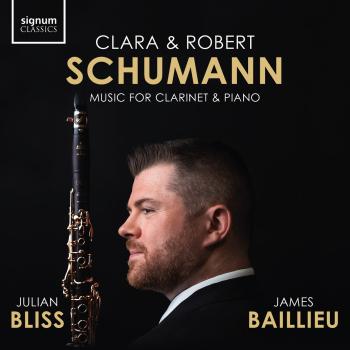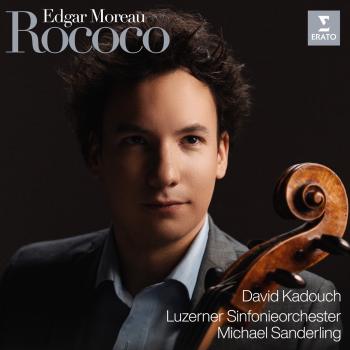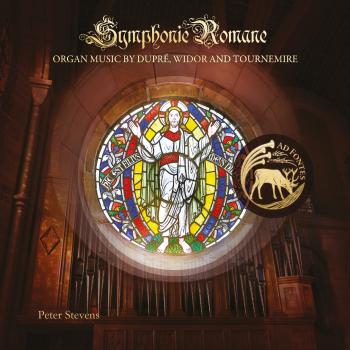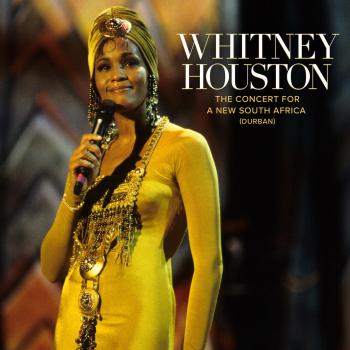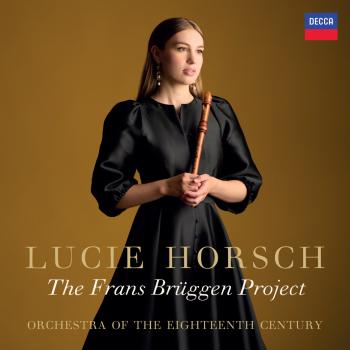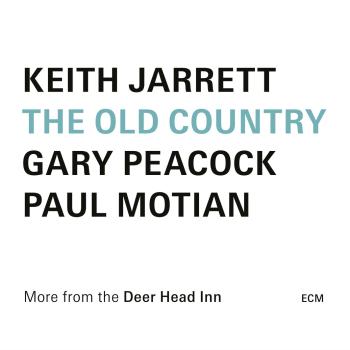
Antonio Draghi & Leonardo García Alarcón: El Prometeo Capella Mediterranea, Chœur de chambre de Namur & Leonardo García Alarcón
Album Info
Album Veröffentlichung:
2020
HRA-Veröffentlichung:
06.03.2020
Label: Alpha
Genre: Classical
Subgenre: Opera
Interpret: Capella Mediterranea, Chœur de chambre de Namur & Leonardo García Alarcón
Komponist: Antonio Draghi (1634-1700)
Das Album enthält Albumcover Booklet (PDF)
- Antonio Draghi (1634 - 1700): El Prometeo:
- 1 Overture 00:28
- Act I:
- 2 Act I Scenes 1 & 2: Soberana Hermosura 06:36
- 3 Act I Scene 3: Bueno Has Quedado Corazon Amante 01:33
- 4 Act I Scene 3: Amante de Prometeo 07:05
- 5 Act I Scene 4: À del Falado Reyno 05:02
- 6 Act I Scene 5: Tetis Felice, y Hermosa 02:35
- 7 Act I Scene 6: Si en Medio de Se Divìna 04:41
- 8 Act I Scene 7: En Fin Con Doña Estatua Embelesádo 01:18
- 9 Act I Scene 8: Que Siempre Llegue 01:41
- 10 Act I Scene 9: Prometeo 05:34
- 11 Act I Scene 10: Tus Bodas, Gran Tonante 05:36
- 12 Act I Scene 11: Ya Tetis, Gran Nerèo 05:20
- Act II:
- 13 Act II Scene 1: Que Firme, Que Esento 03:22
- 14 Act II Scene 2: Que Roban, Que Llevan 01:54
- 15 Act II Scene 3: Padre 01:24
- 16 Act II Scene 4: Tu Mercurio Vuela 02:43
- 17 Act II Scene 5: Quando Fin Darà el Deséo 02:35
- 18 Act II Scene 6: Tu Padre, Tetis, Señores 02:06
- 19 Act II Scene 7: A Fama 04:43
- 20 Act II Scene 8: O Fuego Soberàno 04:38
- 21 Act II Scene 9: Quien de los Cielos Profano 00:44
- 22 Act II Scene 10: En Busca de Mi Amante 03:03
- 23 Act II Scene 11: A Adorar las Cenizas de Mi Amada 02:30
- 24 Act II Scene 12: Ay de la Vida 02:30
- Leonardo García Alarcón (b. 1976): Act III:
- 25 Act III Scene 1: No Ha de Rendirte Parias 08:20
- 26 Act III Scene 2: Dioses, Pues no Hay Remedio 04:12
- 27 Act III Scene 3: Pues Fuiste en Mi Mal 04:17
- 28 Act III Scene 4: Hasta Quando, Amorosos Desaciertos 04:38
- 29 Act III Scene 5: Sentida 04:27
- 30 Act III Scene 6: Si la Vista Real, al Deliquente 02:18
- 31 Act III Scene 7: A Imperio Fulminante 01:39
- 32 Act III Scene 8: Satyro Fiel, Consuelete Mi Pena 03:40
- 33 Act III Scene 9: Araña Se Mira Aragne 05:04
- 34 Act III Scene 10: Pues Toco, Pues Miro 01:19
- 35 Act III Scene 11: O Suma Deidad 02:18
- 36 Act III Scene 11: Y a Tus Plantas 02:48
- 37 Act III Scene 11: Levantad 01:51
Info zu Antonio Draghi & Leonardo García Alarcón: El Prometeo
Die Originalpartitur von „El Prometeo“ (Prometheus) befindet sich in der Bibliothek der Leopoldina in Wien. Sie stammt aus dem Jahr 1669 und wurde vom Komponisten Antonio Draghi geschrieben, der auch als Sänger vor allem in den Opern von Cavalli wirkte. Zum ersten Mal in der Geschichte schrieb ein Italiener einen Text auf Spanisch. Der letzte Akt von „El Prometeo“ ist verschollen. Da jedoch das Libretto erhalten ist, beschloss Leonardo García Alarcón, die gesamte Musik dafür neu zu schreiben. „Ich tauchte in Draghis Musik ein, um seinen Stil, seine Lieblingsintervalle, die Melodik und die Art des Basso continuo, die er liebte, zu verstehen, um so eine Partitur zu komponieren, die seiner würdig ist. Ich hoffe also, dass dieser dritte Akt seiner Musik, seinen Absichten und seiner Kreativität gerecht wird», sagt der argentinische Dirigent. Leonardo García Alarcón leitet eine brillante Besetzung (Fabio Trümpy, Mariana Flores, Giuseppina Bridelli, Scott Conner, Borja Quisa, Zachary Wilder, Ana Quintans) und erweckt diese spanischsprachige barocke Oper wieder zum Leben - eine Gelegenheit, bei der er auch die Liebe zu seiner Muttersprache zeigt, eine «höchst musikalische Sprache“!
Fabio Trümpy, Tenor (PROMETEO)
Scott Conner, Bass (PELEO)
Mariana Flores, Sopran (TETIS)
Giuseppina Bridelli, Mezzosopran (NISSEA)
Borja Quiza, Bariton (SATYRO)
Zachary Wilder, Tenor (MERCURIO)
Choeur de Chambre de Namur
Cappella Mediterranea
Leonardo Garcia Alarcon, Dirigent
Leonardo García Alarcón
After studying piano in Argentina, Leonardo García Alarcón moved to Europe in 1997 and joined the Geneva Conservatory in the class of harpsichordist Christiane Jaccottet. Leonardo García Alarcón emerged in a few years as the leading conductor of the baroque world. Argentinian by origin and holder of both Swiss and Argentinian nationality, he is coveted by the greatest musical and lyrical institutions, from the Paris Opera to the Teatro de la Zarzuela in Madrid and the Grand Theatre in Geneva, the city where he made his first appearance. It was under the guidance of Gabriel Garrido that he embarked on the baroque adventure, while also receiving the support of John Eliot Gardiner and Philippe Herreweghe.
Under the patronage of these established masters, he created about ten years ago his ensemble Cappella Mediterranea, following by the foundation of the Millennium Orchestra, which he also founded to accompany the Namur Chamber Choir, of which he took over the conductorship in 2010, one of the best baroque choirs in existence. He is divided between Geneva, France (notably as an assiduous pillar of the Ambronay Festival and, since this year, artist in residence at the Opéra de Dijon), Belgium, but also with sporadic visits to his native South America. A form of geographical eclecticism, to which his repertoire corresponds. With a taste and a vocation to bring back to life unknown works from Cavalli, Sacrati, Draghi, Falvetti…
This is how we owe the reinstatement of Cavalli's operas to this barely forty-three-year-old conductor: Eliogabalo, to open the Paris Opera season in 2016, Il Giasone in Geneva and Erismena at the 2017 Festival of Aix-en-Provence, El Prometeo by Antonio Draghi in 2018 at the Opéra de Dijon or the recent rediscovery (also at the Opéra de Dijon) of Francesco Sacrati's La finta pazza, the very first opera imported to Paris.
As a conductor or harpsichordist, he is invited by festivals and concert halls all over the world to conduct different orchestra (Orchestre Philharmonique de Radio France, Orchestra del Maggio Musicale Fiorentino, Freiburger Barokorchester, Gulbenkian Orchestra…)
In November 2018, he conducted Monteverdi's Orfeo in the staging of Sasha Waltz at the Berlin Staatsoper Berlin. In September 2019, triumphed with Rameau’s Les Indes Galantes at the Opéra Bastille on the occasion of the 350th anniversary of the Royal Academy of Music. He will conduct again Les Indes galantes in another staging at the Grand Théâtre de Genève in December 2019. He also starts a residence at the auditorium of Radio France for a series of concerts. At the beginning of 2020, he will conduct a new production of Handel’s Alcina together with the Cappella Mediterranea in Nancy and Dijon, before returning next summer to the Aix en Provence festival for a new production of L'incoronazione di Poppea.
His discography has been unanimously acclaimed by critics. In September 2016, I 7 Peccati Capitali was released by Alpha Classic: an imaginary programme based on Monteverdi's tunes, hailed by the press and nominated in the "best recording" category at the “Victoires de la Musique” 2017. In 2018, he recorded sacred works by Jean-Baptiste Lully, an album around Joan Manuel Serrat and a set of works by Jacques Arcadelt, which received great critical acclaim. The opera production of Il Giasone from Geneva was released on DVD by Alpha Classics in February 2019. A recording of Handel’s Saul with the Millenium Orchestra and the Choeur de Chambre de Namur will soon be released.
In June 2019, Leonardo García Alarcón was made « Chevalier de l’ordre des Arts et Lettres” by the French government.
Booklet für Antonio Draghi & Leonardo García Alarcón: El Prometeo

